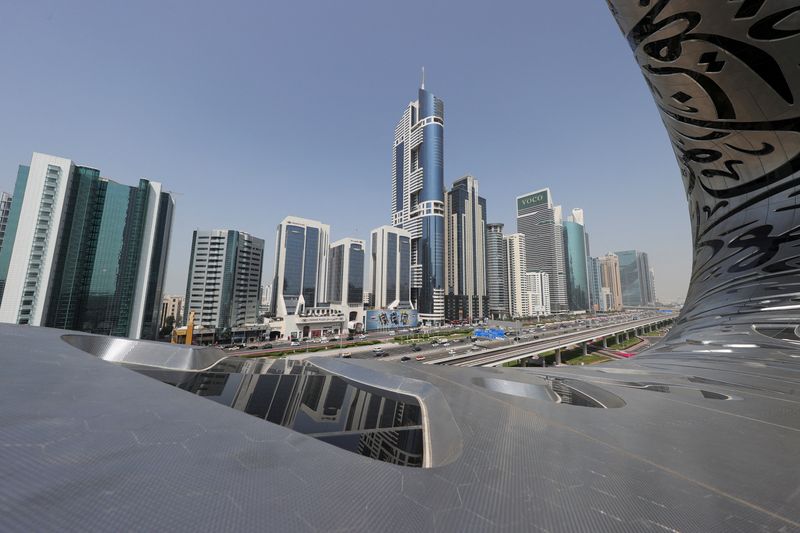DUBAI (Reuters) - Growth in the United Arab Emirates' (UAE) non-oil private sector in February accelerated slightly from the previous month, supported by a pick up in output growth, although the overall outlook remains uncertain, a survey showed on Friday.
The seasonally adjusted S&P Global (NYSE:SPGI) UAE Purchasing Managers' Index (PMI) expanded to 54.3 in February from 54.1 in January, in line with the series long run trend, and remained above 50 separating growth from contraction.
The output sub-index rose to 62.1 in February from 59.8 a month earlier, and the highest since October 2022, the survey showed, with respondents often attributing the increase to new projects or growing client sales.
However, the rate of growth in new orders eased to its lowest level since September 2021 on higher competition and weaker exports. The new order sub index slowed to 55.4 in February versus 56.0 in January.
"The UAE PMI gave conflicting signals for the non-oil economy midway through the first quarter of the year," David Owen, senior economist at S&P Global Market Intelligence, said.
"The chief upside to the index was a faster rate of output growth, which accelerated for the first time in four months. However...the latest upturn in new business was the slowest seen for 17 months, suggesting the improved growth picture may be short-lived."

Improved supply chain conditions contributed to a sharp reduction in lead times, with the Suppliers' Delivery Time sub-index - inverted to the PMI index - at 55.0 in February, indicating the sharpest drop in lead times since September 2019.
Still, business confidence over the next 12 months remained below the 2022 average.